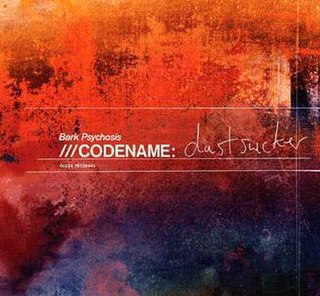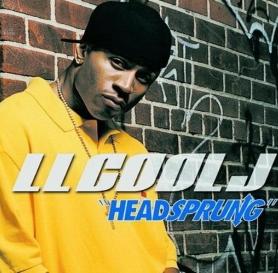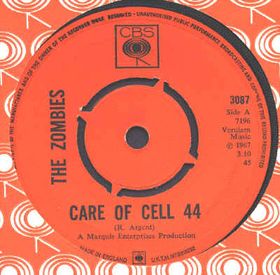The Dunedin sound was a musical and cultural movement in Dunedin, Otago, New Zealand, in the early 1980s. It helped found indie rock as a genre. The scene is associated with Flying Nun Records, an independent label.

The Blueprint is the sixth studio album by American rapper Jay-Z, released on September 11, 2001, through Roc-A-Fella Records and Def Jam Recordings. Its release was set a week earlier than initially planned in order to combat bootlegging. Recording sessions for the album took place during 2001 at Manhattan Center Studios and Baseline Studios in New York City. Contrasting the radio-friendly sound of Jay-Z's previous work, The Blueprint features soul-based sampling and production handled primarily by Kanye West, Just Blaze, and Bink, as well as Timbaland, Trackmasters, and Eminem, who also contributes the album's sole guest feature.

Vol. 3: is the third studio album by American heavy metal band Slipknot, released on May 25, 2004, by Roadrunner Records. A special edition, containing a bonus disc, was released on April 12, 2005. It is the band's only album produced by Rick Rubin. Following the band's tour to promote its second album in 2002, speculation regarding the future began. Some band members had already been involved in side projects including Murderdolls, To My Surprise, and the reformation of Stone Sour. In 2003, Slipknot moved into The Mansion to work on the album. Initially, the band was unproductive; lead vocalist Corey Taylor was drinking heavily. Nevertheless, the band managed to write more than enough material for a new album. Vol. 3 is credited as Slipknot's first to incorporate more traditional, melodic song structures, guitar solos and acoustic instruments.

"Discothèque" is a song by Irish rock band U2. It is the opening track on their 1997 album, Pop, and was released as its lead single on 3 February 1997 by Island Records. The song exhibits influences from electronic dance music, characteristic of the band's musical direction in the 1990s. The music video, directed by Stéphane Sednaoui, was set inside of a mirrorball and featured the band members dressed as members of the disco group the Village People.

I See a Darkness is the sixth album by American musician Will Oldham, released on Palace Records on January 19, 1999, as the first album under the name Bonnie "Prince" Billy. The album features appearances from Bob Arellano, Colin Gagon, Paul Oldham, David Pajo, and Peter Townsend.

Beneath the Surface is the third solo studio album by American hip hop musician and Wu-Tang Clan member GZA. The album was released on June 29, 1999, by MCA Records.

"Number 1" is a song by English electronic music duo Goldfrapp from their third studio album, Supernature (2005). Written and produced by Alison Goldfrapp and Will Gregory, the song features a synthesiser and bass guitar arrangement and was written about the importance and meaningfulness that somebody shares with another, despite that it might not necessarily last.

"Duality" is a song by American heavy metal band Slipknot. It was released on May 4, 2004, as the first single from the band's third album, Vol. 3: . A music video was made for the song, which was listed as Roadrunner's greatest video of all time.

"Eight Easy Steps" is a rock song written by Alanis Morissette for her sixth studio album, So-Called Chaos. The album's opening track, it was released in 2004 as the So-Called Chaos's third single. The song may be seen as discussing self-help, with the message that it is the "course of a lifetime", but the help that is actually "offered" in the song is tongue-in-cheek, with lines like "How to lie to yourself and thereby to everyone else" and "How to control someone to be a carbon copy of you."

Codename: Dustsucker, stylised as ///CODENAME: dustsucker, is the second studio album by English post-rock band Bark Psychosis. It was released on 28 July 2004 on Fire Records. The album was recorded at DustSuckerSound, a private studio run by Bark Psychosis member Graham Sutton in east London, between 1999 and 2004. It notably features the contributions of Lee Harris, the drummer and percussionist of early post-rock purveyors Talk Talk.

"Headsprung" is a song by American hip hop artist LL Cool J. It was released on June 7, 2004 as the lead single from his eleventh album, The DEFinition. The song was a success on the charts, it peaked at number 16 on the Billboard Hot 100, number 4 on the Hot Rap Songs and number 7 on the Hot R&B/Hip-Hop Songs.

"Pressure" is a 1982 song by American musician Billy Joel from the album The Nylon Curtain, released as the album's first single and reached at number 20 on the US Billboard Hot 100. The synthesizer-driven rock song tells about the pressure of creating and the pressure of being a provider.

Death Rap is the fifth solo studio album by American rapper and record producer Necro. It was released on September 11, 2007 via Psycho+Logical-Records. It was the first studio album Necro released since signing with Koch Distribution in July 2007. As the title suggests, the album is Necro's return to emphasis on gore and violence, rather than sex, such as in his 2005 album The Sexorcist. Pre-orders of the album were shipped with a limited edition bonus DVD that contained an unreleased music video and six live performances. Like his last album, Necro chose not to place a parental advisory sticker on the cover.

Stylus Magazine was an American online music and film magazine, launched in 2002 and co-founded by Todd L. Burns. It featured long-form music journalism, four daily music reviews, movie reviews, podcasts, an MP3 blog, and a text blog.
"Us Placers" is the debut song by American supergroup Child Rebel Soldier, a musical collaboration consisting of American hip-hop artists Lupe Fiasco, Kanye West, and Pharrell Williams. It was released as the third song on the track-listing of West's 2007 mixtape Can't Tell Me Nothing. The song was produced by Fiasco and samples the 2006 song "The Eraser" by Thom Yorke. In "Us Placers," the trio speaks on the entrapments of fame. Having been released on a free mixtape, the song did not enter the charts but became an online hit and received strong reviews from music critics.
The Bird Nest Roys were a New Zealand rock group, formed in the mid-1980s in the hills west of Auckland, New Zealand. They released one self-titled album on Flying Nun Records. Despite being from Auckland, they are frequently cited as one of the bands that played the Dunedin sound, named after the city of Dunedin in the South Island of New Zealand.
Peter Gutteridge was a New Zealand musician, credited with pioneering the Dunedin sound with The Clean and The Chills.

"Care of Cell 44" is a single by the Zombies, released as the lead single from their album Odessey and Oracle in November 1967. It was featured on Pitchfork's "200 Best Songs of the 1960s" list, and has been covered by modern artists including Elliott Smith and Of Montreal.

Shotgun Blossom is the debut album by New Zealand indie rock group Snapper. It was released via Avalanche Records.

Snapper is an EP by New Zealand indie rock group Snapper, released in 1988 through Flying Nun Records.
















